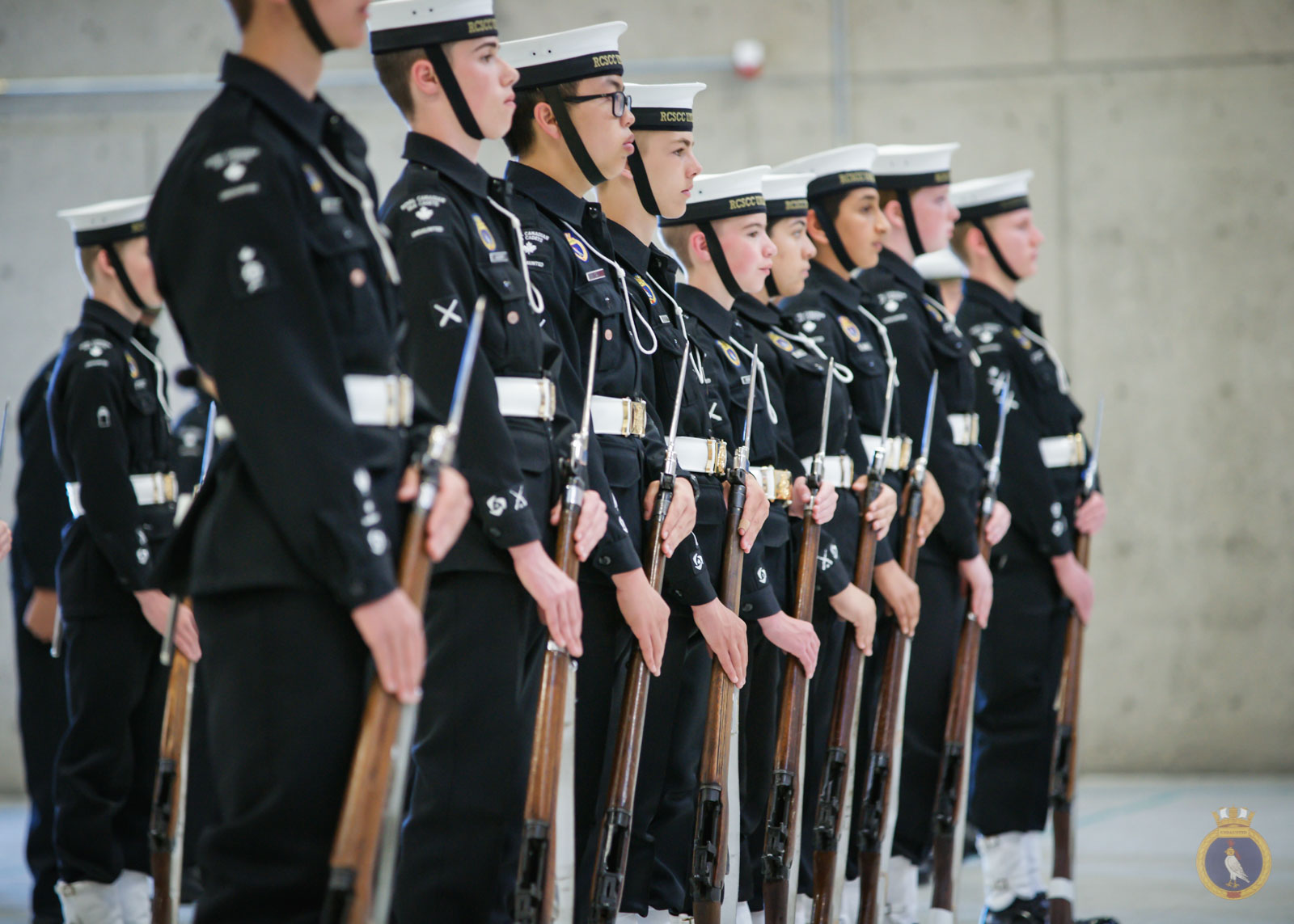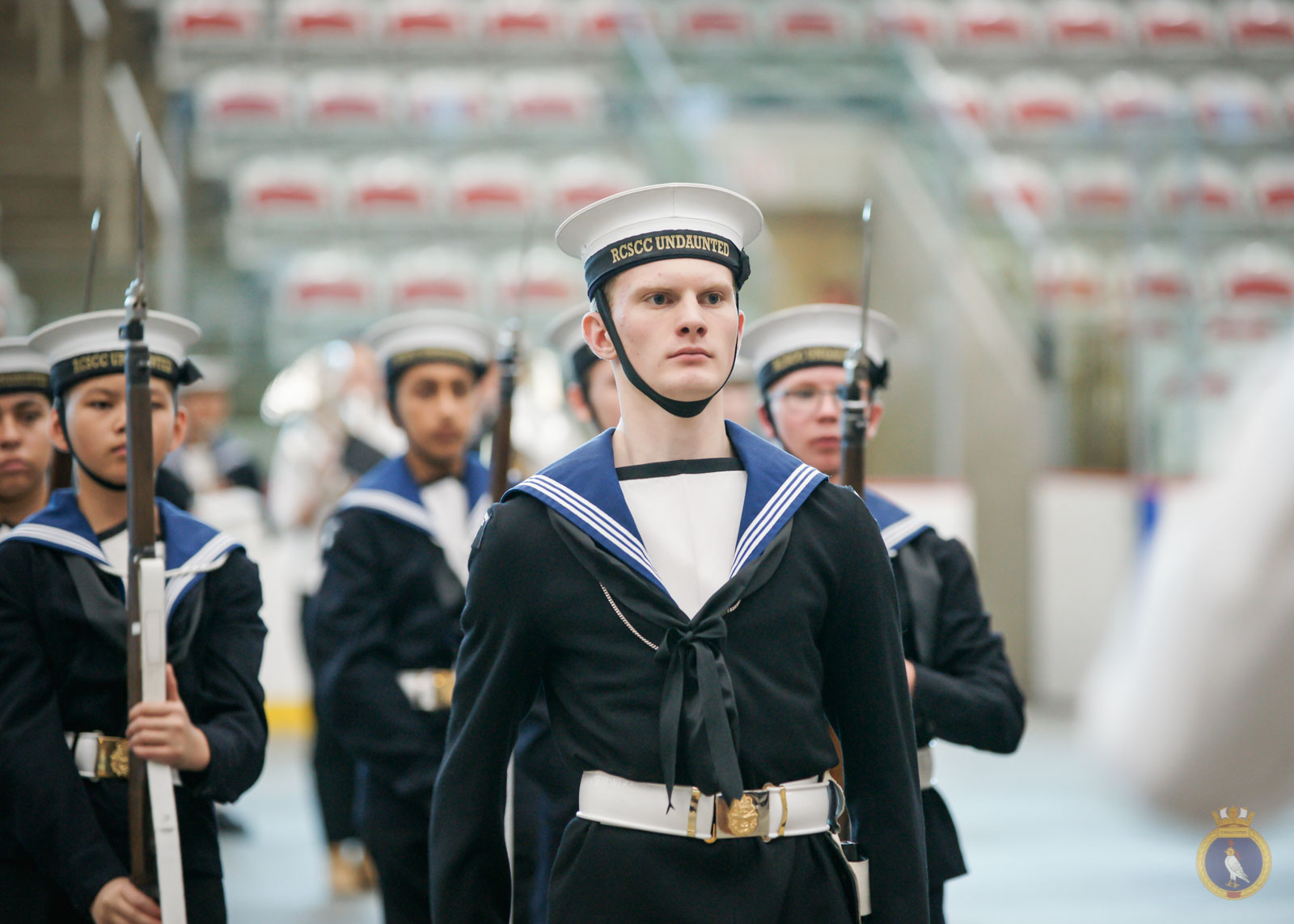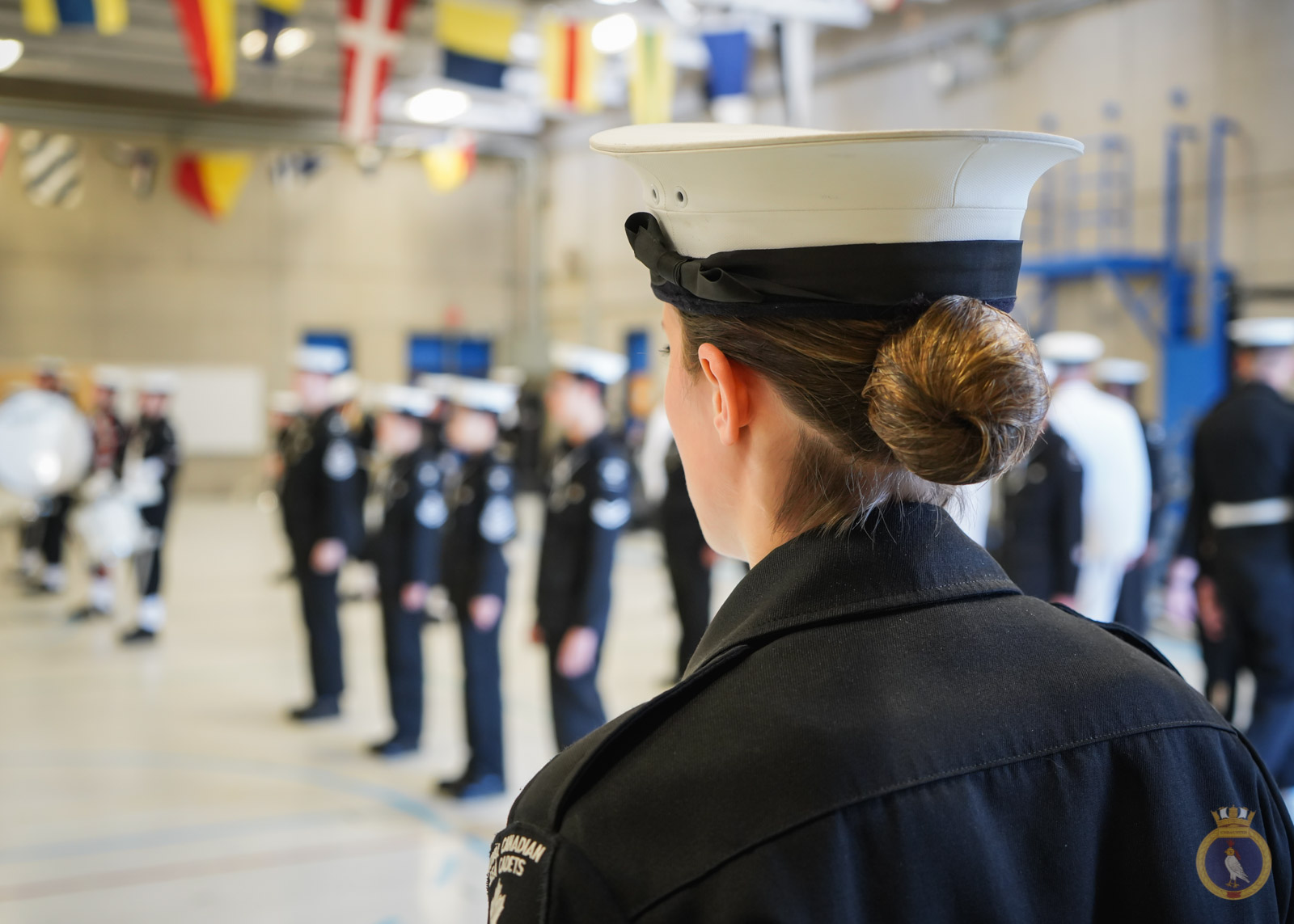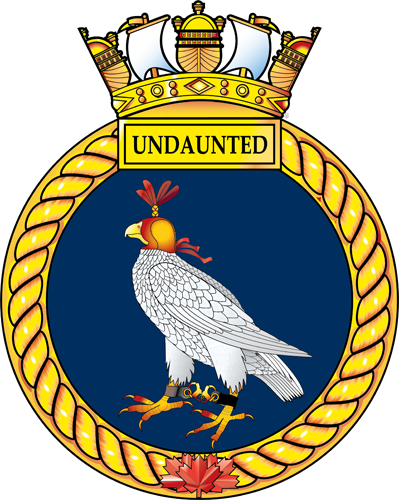Uniform Guidelines

Uniform Care & Dress Instructions
It probably seems like there are a lot of rules to follow when wearing your uniform, but it is important that everyone strives to achieve the set standard. When you are in uniform, and in the public eye, people notice how you behave. Conduct such as chewing gum, slouching, smoking on the street and walking hand in hand is forbidden.You should wear your uniform with pride and always be on your best behavior. You are representing the Sea Cadet organization and that means giving the best impression that you possibly can.
Seaman's Cap or White Top
Worn so that the rim is one finger above your eyebrow.The front cap seam is centered directly over your nose.
Your chinstay is to be sewn inside your cap at the length that permits the stay to fit under your chin. You do not wear your chinstay unless you are told to.
Hand wash your cap regularly in cold water and detergent, using an old toothbrush to scrub the dirt off.
Cap tallies with "Royal Canadian Sea Cadets" should be centered so that the front cap seam is between the "I" and "A" of the word "Canadian".
Tie your cap tally with a neat bow, not more than 7.5 cm and not less than 5 cm across. The ends are of equal length.
Center your bow over the left ear vents.
Cap tallies with corps names shall be worn the same way, except centered accordingly.

Whiteshirts
May be worn during the summer with or without the tunic.If worn without the tunic, the necktie must be worn.
Sleeves are pressed with a crease along the upper edge of each sleeve.
Epaulets (rank slip on's), and the cadet name tag are to be worn with the white shirt.
Tunic
Sleeves shall be roll-pressed with no creases.When your tunic is worn, it shall be fully buttoned, except for the first button down from the top.
Ensure all your pocket buttons are done up.
Do not fill your pockets with items so that they bulge out.
Be sure your belt is even, with no twists.
Use a pressing cloth (thin towel, or pillow case) when ironing, to prevent shininess.
Lanyard
Worn under the collar of your tunic.The knot is at the level of your first fastened button.
Tuck the end of your lanyard into the inner corner of left breast pocket with the slack or bight hanging 8 cm below the level of the top of pocket.
Trousers
Trousers are worn with a black belt.Pressed so as to have creases down the center of each leg on both the back and front.
Wet your pants (with a spray bottle filled with water) when ironing to make sharp creases, and don't forget to use a pressing cloth to prevent shininess. A pressing cloth can be a towel or piece of cotton material laid overtop of your pants while you iron.
Parkas
3-in-1 design.Black, drawstring waist with fleece lining.
Can be worn on mandatory support weekends.
Your rank is attached to your shoulder epaulets on slipons.
Gloves
Worn with your parka when the weather is cold.Toque
Worn so that the rim of the toque is one finger above the eye-brow.Wool or acrylic.
The insignia is centered directly over your nose.
Worn only with the parka.
Socks
Grey wool socks.If you are allergic to wool, white sports socks can be worn under your grey wool socks, or a suitable replacement may be used.

Boots
Laced horizontally from side to side.There are time-honored methods to bringing your boots up to the shiny standard you see on other boots. It takes time and patience, but hard work will bring great results. Try the following:
Remove dust and dirt from boot with a soft damp cloth.
Use an old toothbrush to remove dirt from catwalks.
Use a toothbrush, with polish, to blacken the catwalks.
Apply a moderate amount of polish to the area of the boot you will polish first.
Use a polishing cloth or other soft cloth wrapped around your index finger and dampened with cool water.
You should work on one section at a time. Apply the polish in a circular motion. Start with larger circles to cover the area with polish. Use smaller circles as the polish works into the boot. Continue with the circular motion until you can no longer see the circles formed by the polish.
You will have to continue applying coats of polish in this way until the boots have a high gloss.
Be patient, good boots take time.
Webbing
Worn by guards, gun crews, band members, quartermasters and members of gangway staff while on duty, Chief Petty Officers, duty yeomen, duty buglers, members of side parties, and drill teams.Webbing consists of white web or plastic belt and white web gaiters which go around your ankles.
White belts shall not be worn without gaiters.
Gaiters shall be worn with the scalloped edges down, buckles to the outside, tab ends to the back and tucked into retaining loops.
Badges
Will be sewn on the cadet tunic neatly, using a thread which blends in with the material.Rank Badges
Qualification and Appointment Badges
Proficiency Badges
Other Badges / Medals
Jewelry
All cadets are allowed to wear a wristwatch, a Medical Alert bracelet, and a maximum of two rings.Necklaces will not be worn in uniform.
Female cadets can also wear a single pair of plain gold or silver stud earrings, centered in each earlobe.
If a cadet has more than one piercing on each ear, they are permitted to wear jewellry on one of those piercings.

